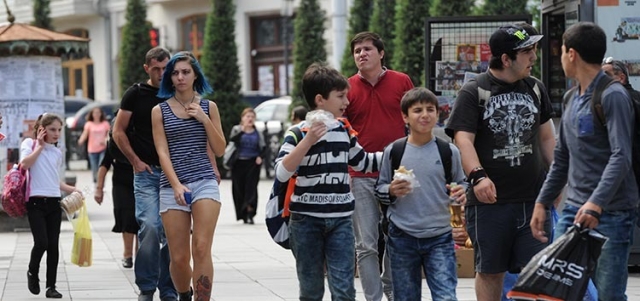Young Professionals and Students Discuss Future of Caucasus at EBRD Closing Ceremony
The EBRD Annual Meeting and Business Forum in Tbilisi closed with a special event focusing on the thoughts of future leaders and decision-makers from the region. Together with the Free University of Tbilisi, the Tbilisi State University, the American University of Armenia and the ADA University of Azerbaijan, the EBRD launched an essay competition entitled Tbilisi 2015/Caucasus 2051- A History of Our Future: Our Fears, Our Hopes, Our Lives in which the winners discussed their ideas on how to make the region a better place.
Natalia Antelava, journalist and TV presenter, noted that Georgia is not doing enough in many areas. She gave the example of the government’s initiative of Georgia 2020, noting that “future should be today and now.” She also added that the young generation in the Caucasus region has more options and more opportunities than before, but also more responsibilities compared to previous generations.
David Abesadze of TSU stated in his essay that the fate of Sisyphus (by Albert Camus) is similar to the fate of Georgia, who inexhaustibly fights for its freedom. “You have to try and try again, despite success or failure. The future is the result of what we try today” he asserted.
Hambardzum Galstyan from the American University of Armenia gave another perspective: “People in my country [Armenia] are less optimistic; they don’t see and strive for the change, while I disagree with them. We need to change our character and think more about society rather than ourselves.”
Dimitri Dekanozishvili from the Free University of Tbilisi in his work states that the Caucasus has historically been unsure whether it belongs to Asia or Europe: “It’s like an individual who has lost its faith and is oriented towards not creating something new but searching for a successful person from whom he will be able to attain everything good.”
When asked how they see the region in ten years from now, the participants identified territorial integrity, economical growth, democracy and great competition as being main features of the near future.
In addition, while discussing the future the region, Antelava expressed her opinion that: “the only chance this region has lies in innovation and creating something new. This is the place facing huge opportunities and challenges due to the political situation of its neighbors. But in order for South Caucasus to become something other than a back water of the world, it really needs to reinvent itself; however, I don’t think it will happen if the political situation in each country continues to be as it is today. You need to have freedom to have innovation – a political freedom. We need to be truly unique to offer the world something that others can’t. The potential is there but it’s being lost unless we grab that opportunity.”
The panel was concluded by an award ceremony, where Lile Kazaishvili, Nika Maghlaperidze, Hambarzoum Galstyan and Toghrul Novruzlu won specially engraved iPods. Elsewhere, as a reward for her poetic and distinguished essay, Lile Kazaishvili won an internship at Wissol Group.
Baia Dzagnidze











